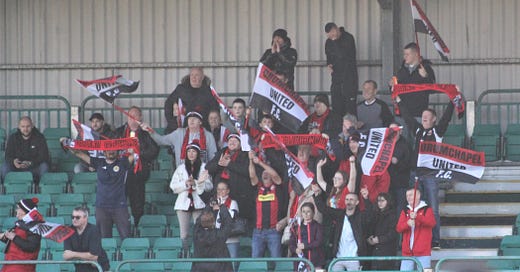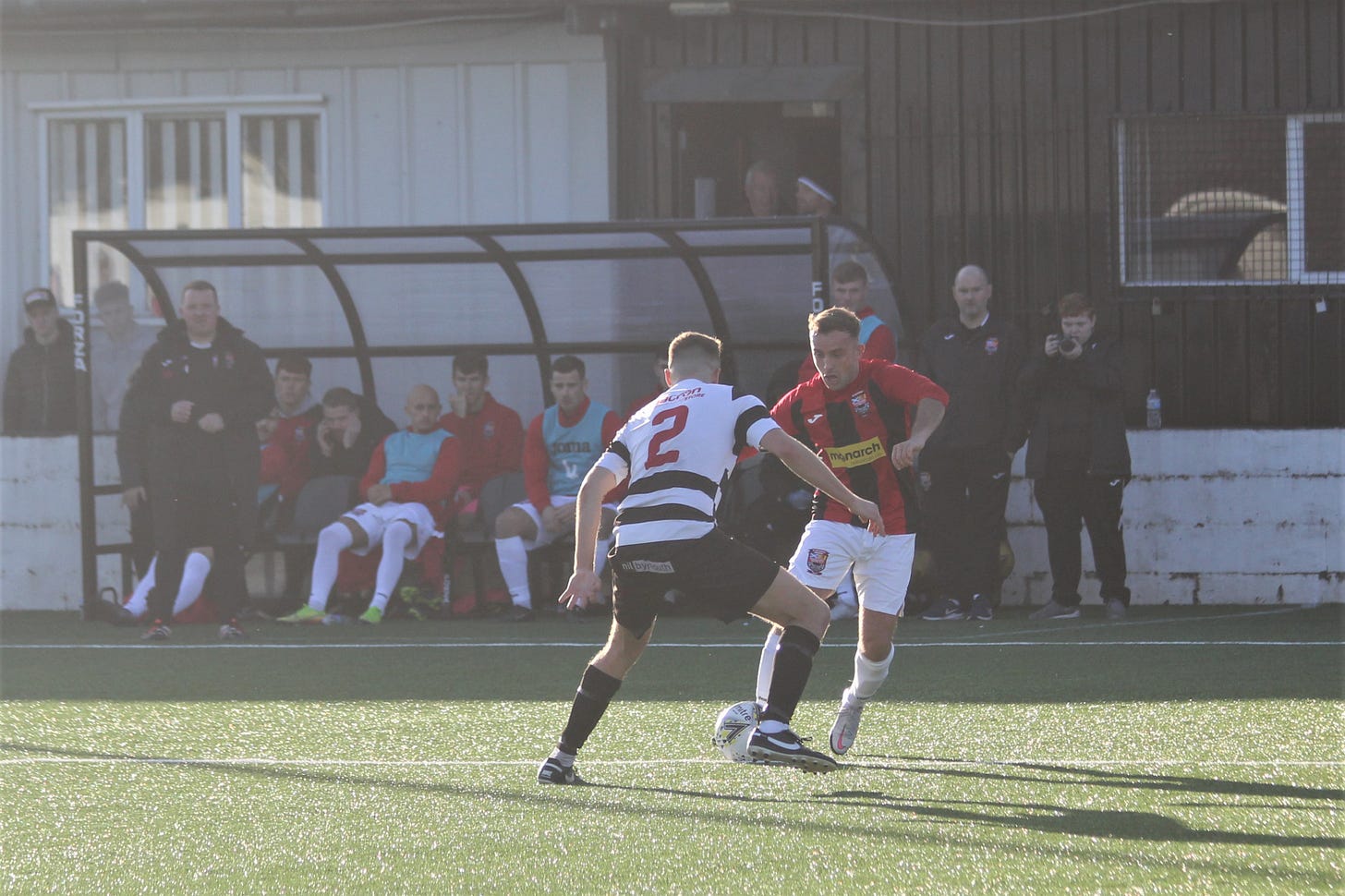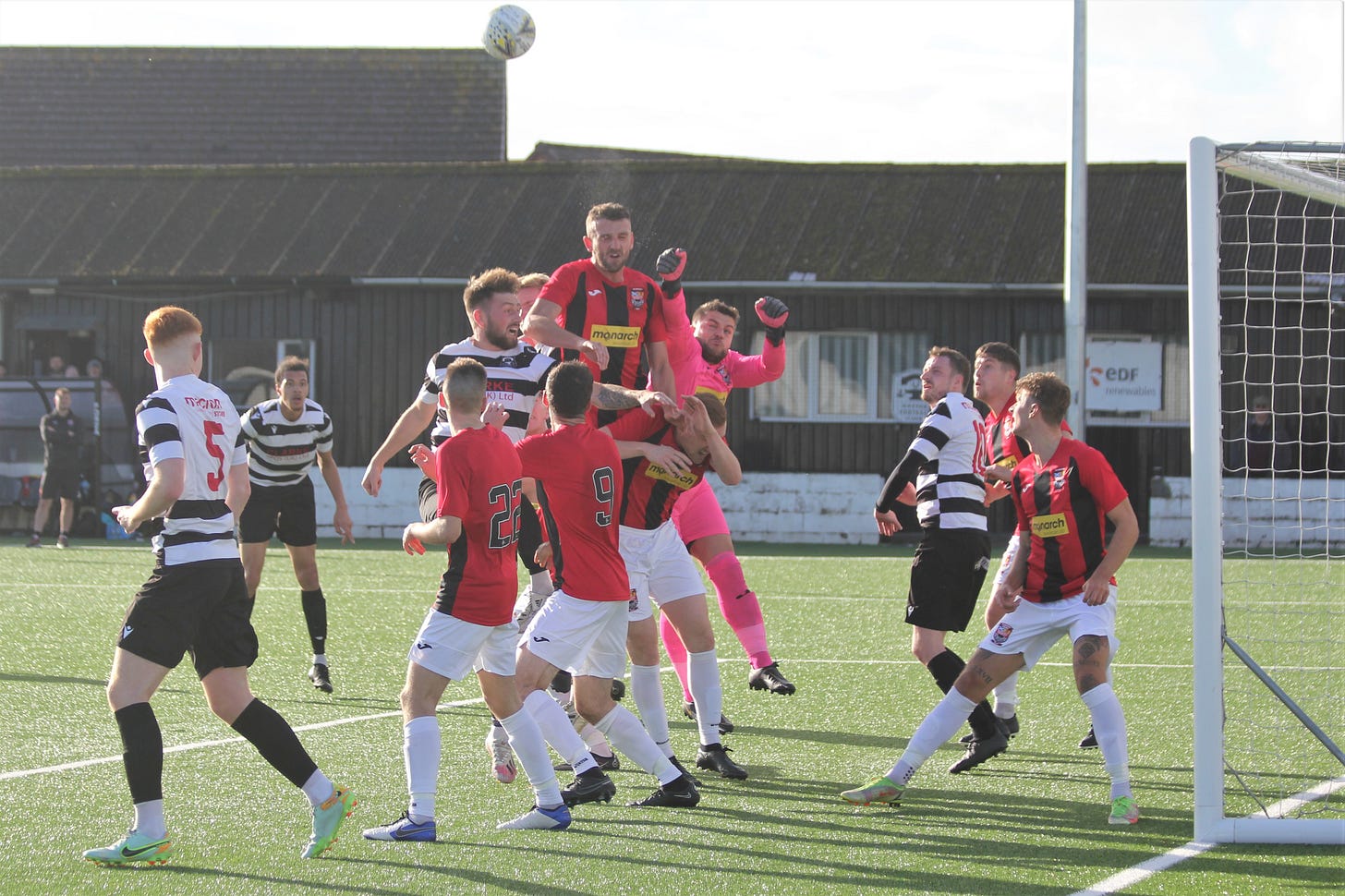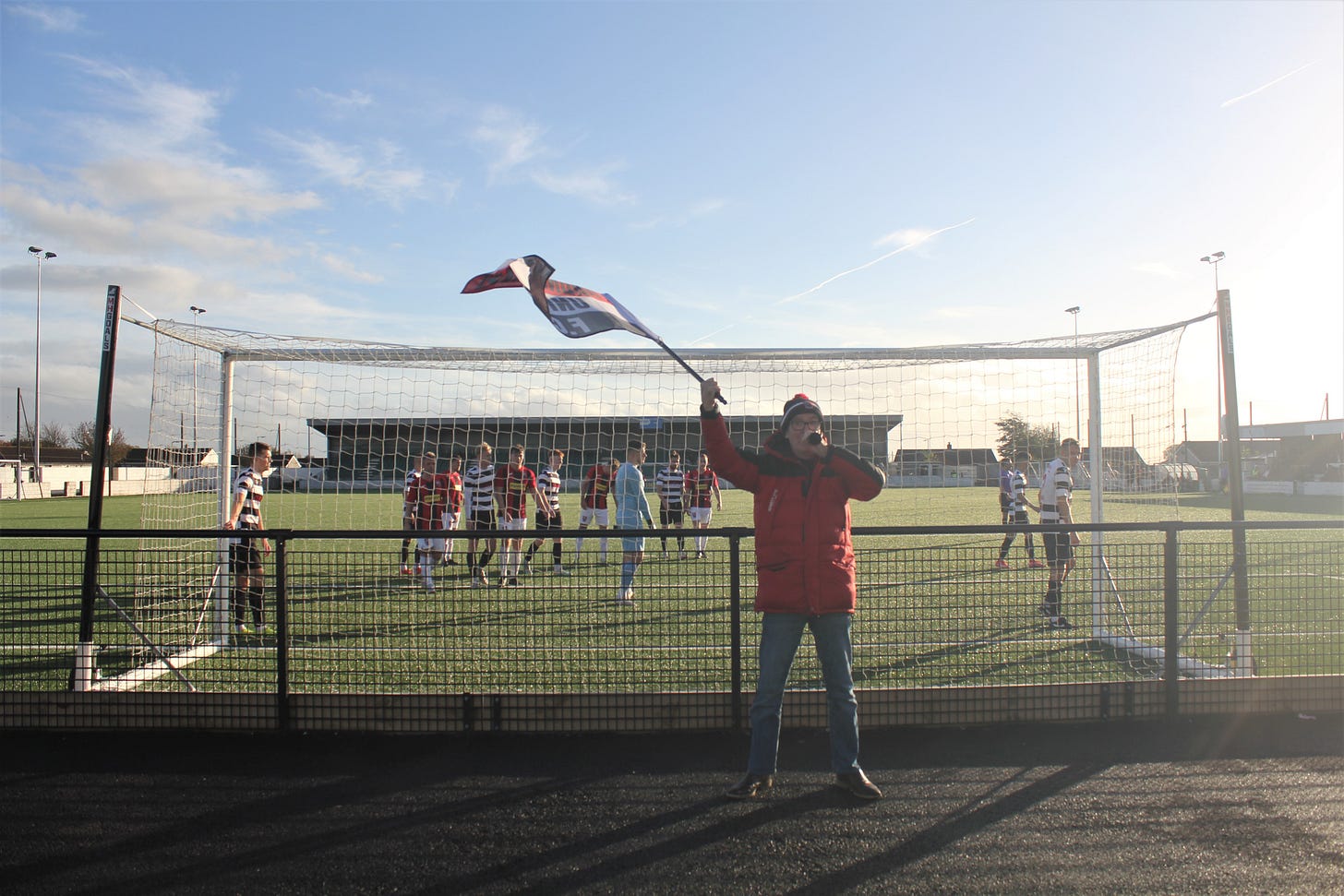Sport can be a catalyst to revive a community. Not in the cynical, overblown Olympic-inspired sense, where nations are prodded into building vastly expensive arenas in the hope of some vague ‘legacy’. More in the sense of how a grassroots club can promote unity and inclusivity, with all the positives that can offer a community. That’s where Drumchapel United comes in.
In the late 1990s, I lived in Glasgow for a year. Studying at Strathclyde Uni, I was based at the Jordanhill campus. It’s only a couple of miles from Drumchapel, part of the same parliamentary constituency. However, the leafy suburban streets around our college were light years from the housing scheme just over the Great Western Road. The Drum’s reputation did not encourage visitors from outside; the locals on my course advised giving it a wide berth.
Drumchapel United didn’t exist then. The club was founded in 2001 and from day one it was forged from a desire to promote Drumchapel and its people. Confronting the stark stats that life expectancies in the scheme are five or six years lower than the city’s average – and the greater discrepancy with the affluent Milngavie and Bearsden neighbourhoods nearby – club secretary Scott Bland admitted that club and its home district have to live with an enduring stigma. However, as he told The Guardian in 2020: “For the club, it is about putting down a marker where people throughout Scotland know Drumchapel as a really good club. We might have these poverty stats, but it’s not about that. It’s about people. We are trying to promote our people.”
In the past, Drumchapel produced international stars. Stalwart Celtic full-back Danny McGrain, a legend of Scottish football, grew up there. So did forward Andy Gray, another international star. United plays at a more modest level, moving into the West of Scotland League last season. That switch, and a Strathclyde Cup win, opened the way to compete in the Scottish FA Cup for the first time. Suddenly, the club’s profile got a big new boost. Progress could bring much-needed funds, plus the chance to face Scottish League opposition.
The draw for Saturday’s second round did not send a League Two team to the Drum. But it did deliver a trip to a former finalist. Well, sort of. Gretna 2008 is the phoenix team from Gretna FC, whose fairy-tale rise from England’s Northern Premier League to the Scotland’s SPL also included a shoot-out defeat to Hearts in the 2006 final. That was good enough to deliver European football to a village more famous for eloping brides. The club ran out of funds within a couple of years and the reformed team, currently in the Lowland League, has no legal connection with the erstwhile pro team. For many of Gretna 2008’s fans, though, the connection remains.
On the day, though, Drumchapel came out comfortably on top. On paper, the Lowland League is rather stronger than the West of Scotland. However, the recent realignment of teams formerly playing Junior football (which, in Scotland, never had anything to do with age) is confirming what many suspected: the top teams affiliated to the SJFA were always every bit as good as teams from the SFA’s pyramid, especially outside the Scottish League itself. A fifth-minute penalty from Martin Grehan set the tone in this game, then his wind-assisted second goal gave the Drum a solid lead by half time. Gretna got one back early in the second half, but was left to grumble at the officials as United put away two more to run out 4-1 winners. Grehan finished with a hat-trick on a memorable day in the club’s rise. Red, White and Black flags proudly aloft, the Drum’s fans can look forward to round three and a chance to generate more positive headlines for their home.






